#will it play in peoria
Text
We can only imagine how the homophobes of the Christian Right, in their hard-wired Zealotry and True Belief in homosexuality being a Serious Mental Aberration (notwithstanding the American Psychiatric Association's 1972 delisting of homosexuality in this regard), will react.
Likewise with the Kulturkriegsmennsch who want Amerikanischer Realkultur defined according to the narrow and prismatic beer-goggle lens of 76 Country Boulevard and Shepherd of the Hills Expressway, beside the shores of Table Rock and Taneycomo lakes even, in the 65616.
#hanna barbera#scooby doo franchise#velma dinkley#velma is lesbian#scooby doo#will it play in peoria#what will mrs. grundy think?#culture war#culture warriors#christian homophobia#branson music shows#76 country boulevard#shepherd of the hills expressway#65616#hannabarberaforever
5 notes
·
View notes
Text
The Dead Milkmen - Stuart
youtube
Not me just now realizing there's an actual place called Stuart in Iowa, and why this song is still incredibly relevant while laws against trans people ramp up everywhere.
Middle America still gets underestimated.
youtube
"It will play in Peoria!"
#but they don't know what the queers are doing to the soil#the dead milkmen#programmed to underestimate middle america#“it's funny but will it get them off their tractors?”#“more reality shows!”#“it will play in peoria”#Youtube
2 notes
·
View notes
Text




6/30/2004: MCR plays at Vans Warped Tour in Peoria, AZ🩸 #Revenge20
📸 via Denise Elfenbein
#my chemical romance#mcr#mcrchive#mcrtour#gerard way#frank iero#mikey way#ray toro#three cheers for sweet revenge#revenge20#warped tour
542 notes
·
View notes
Note
hey! I'm trying to indoctrinate my girlfriend into enjoying Queap... which episode should I show her first?
oh dear i'm just now seeing this so sorry!!! it depends on your girlfriend's tastes imo. because queap does genre eps so often and covers so many topics i feel like it's easy to be like "hey you like boxing movies? court dramas? noir detectives? vampires? mummies? glam rock? milfs??? let's watch This Episode
other than that though:
my personal favorites to use are private dancer (3x14) and miss deep south (3x06) because i feel like they capture the social justice themes of the show without being too intense as other Issue Episodes can be, plus private dancer is a great sam romance and miss deep south is thee girlsam episode, another two big aspects of the show<3
i've never introduced anyone through honeymoon express (2x01) but i feel like it'd go over wonderfully as well, as the first "okay now we actually know what we're doing with this show" episode it's a very good introduction to the show
good morning peoria (2x06), another mother (2x13) and sea bride (2x21) are some great lighthearted ones to get to know the characters
i wouldn't necessarily recommend starting out with the more dramatic episodes but if you think that'd get them hooked over anything else, unchained (4x10) and good night, dear heart (2x17) are great standouts
and finally "play ball" (4x01) is a good episode with a pretty standard leap but also featuring thee sam thesis statement (i know you! you're terminally good. if it was up to you, you'd save everyone) and the absolutely devastating reveal of sam and al's first meeting and the basis of their whole relationship so i feel like it'd probably work quite well too.
i definitely would not recommend starting with any lore heavy episodes like m.i.a. or shock theater or the leap home because those gain their strength 100% from already knowing the characters through their more goofy masks which is why the tragedy hits you like a freight train. other than that though yeah that's my 2 cents! this ask is like a month old so you've probably already shown your girlfriend some episodes so this reply might be useless BUT i'm still sharing in case it helps anyone else :-)
good luck and happy queaping <3
17 notes
·
View notes
Photo


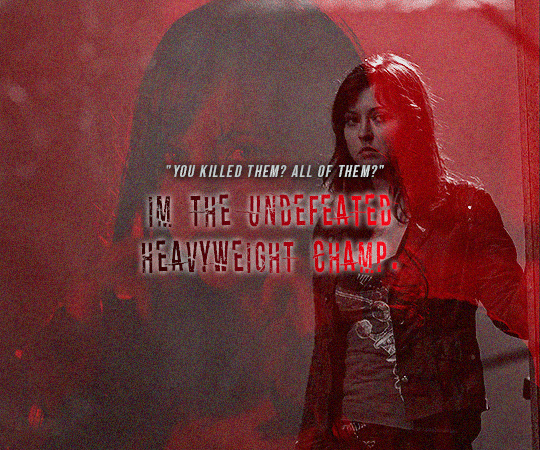
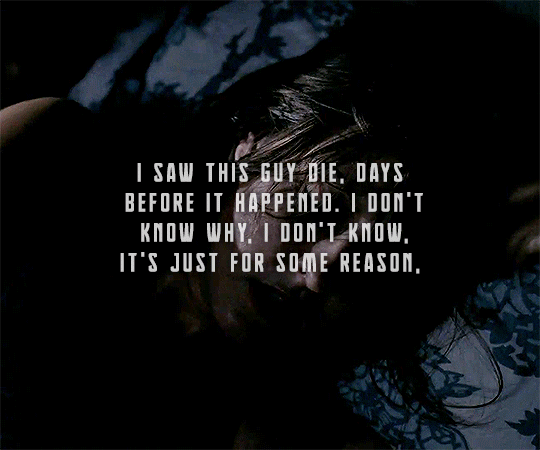
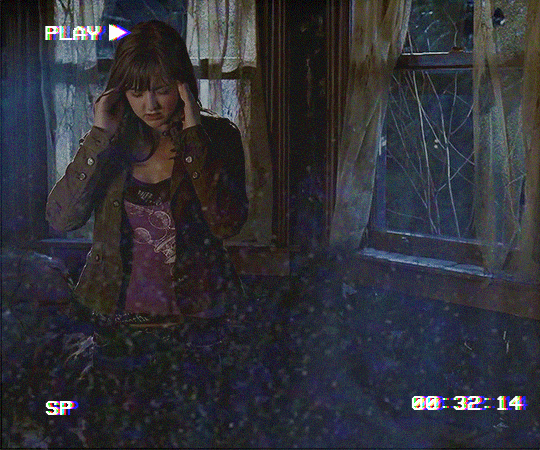

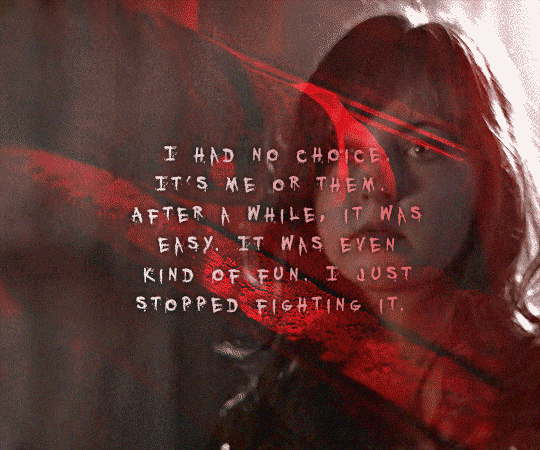
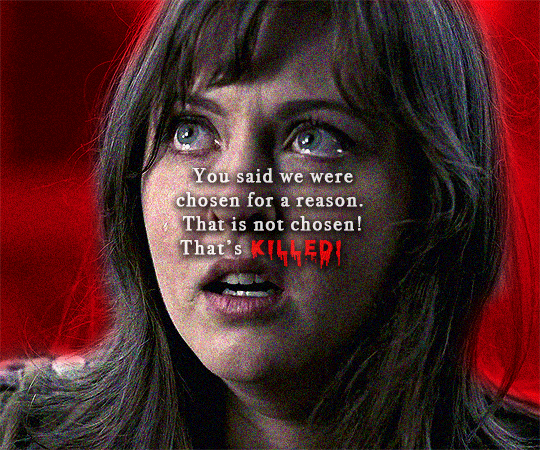

@horrornaturalevent: HORROR MEDIA ‘23- final girl-ism | ava wilson [insp]
Oh my God. Don’t think God has much to do with this, Sam.
[ID: Ten gifs of Ava Wilson in Supernatural. The first gif shows Ava looking over her shoulder as she sits in the front seat of a car. There is a second gif overtop of it, of Ava standing in front of a window. This gif is in a circle and there is a red filter over it. The words “Ava Wilson” are wrapped around and move in a circular motion. The second gif shows two black and white gifs of Ava connected by a glitch effect. The first of them is Ava tilting her head. The second of them is Ava standing in front of a window in an abandoned building. The words “Okay. you know what? Screw you, buddy. Okay? Because I'm a secretary from Peoria and I'm not part of anything!” are written over the gif. The third gif is two gifs overlaid on top of the other with a red filter. One shows Ava standing beside an abandoned building, looking around. The other shows Ava touching the sides of her head. The words “You killed them? All of them?” and “I’m the undefeated heavyweight champ.” are written on the gif. The fourth gif shows Ava waking up in bed. The words “I saw this guy die, days before it happened. I don't know why, I don't know, it's just for some reason,” are written on the gif. Below this text the words “my dreams are coming true.” are also written, in red. The writing of that text is slowly revealed as the gif moves. The fifth gif shows Ava standing by a window, summoning a smoke cloud demon. There is a grainy filter over it and it’s stylized to look like a VHS tape, with the words “play” with a triangle icon in the top left corner, the words “SP” in the bottom left corner, and the numbers “00:32:14″ in the bottom right corner. The sixth gif shows Ava looking around. There is a black and white and red filter over it. The words “I just helped you steal some dead guy's confidential psych files.” are written on it. Under the text is the words “I'm awesome!” written in red cursive. The seventh gif is two gifs overlaid on top of each other with a red filter. The one on top is Ava looking at Sam. The other one is Ava breaking the salt line on the window ledge. The words “ I had no choice. It's me or them. After a while, it was easy. It was even kind of fun. I just stopped fighting it.” are written in a red and white font. The ninth gif shows Ava crying. There is a red background. The words “You said we were chosen for a reason. That is not chosen! That’s killed!” are written on the gif. The tenth gif shows Ava in a motel room. There is another gif of a close up of her face on top of it, in the shape of a diamond with a red filter. The words “Special” and “Child” are written on the top left half and the bottom right half of the diamond respectively. /End ID.]
#supernatural#spn#Ava Wilson#supernaturaledit#spnedit#Katherine Isabelle#horrornaturalmedia23#horrornaturalevent#long post#*#character who is in every episode TO ME
183 notes
·
View notes
Text
Benji Gregory, the child star who appeared in ALF, has died aged 46
Gregory’s body was found on 13 June, with a cause yet to be determined.
According to TMZ, the actor was found in his car in a Chase Bank car park in Peoria, Arizona alongside the body of his service dog, Hans.
The actor’s sister Rebecca, speaking to the outlet about her brother, revealed that the child star suffered from bipolar disorder, depression and a sleep disorder that sometimes caused him to remain awake for days at a time.
The outlet notes that those close to Gregory believe he might have died of heatstroke after falling asleep in his car.
Gregory appeared in all four seasons of the 1980s sitcom ALF, which is an acronym standing for “Alien Life Form”.
The series, which aired on ITV in the UK, saw the alien crash land in the garage of the Tanner family, led by Max Wright and Anne Scedeen, with Gregory playing their son Brian alongside Andrea Elson, who played his sister Lynn.
Ahead of securing the role in ALF, Gregory, whose grandmother was his agent, appeared in TV shows including Fantasy Island, TJ Hooker and The Twilight Zone.
In the 1990s, he guest starred in the sitcom Punky Brewster and provided a voice for animated film Once Upon a Forest. Gregory also voiced the character of Biff Tannen in an animated version of Robert Zemeckis’s hit 1985 film Back to the Future. Tannen was played by Thomas F Wilson in the franchise.
The following decade, Gregory enlisted in the US Navy and, in 2005, receiving an honourable medical discharge. After officially leaving the Navy in 2006, he married his wife Sarah.
Gregory’s sister asked people to donate to The Actors Equity Foundation or the ASPCA on her brother’s behalf.
11 notes
·
View notes
Text


During the Florida Land Boom of the 1920s, entrepreneurs and real estate developers deployed creative tactics to woo potential clients [...] to invest in Florida land. [...] At Miami Beach, where Indianapolis-based entrepreneur Carl Fisher invested millions in resort development during the 1920s, tourists encountered a surprising attraction: elephants. Two elephants were brought to Miami Beach. They were named Carl II (named after Fisher himself) and Rosie [...]. Seeing the elephants’ work at Miami Beach positions these more-than-human actors in the histories of leisure in South Florida, as they signal the uncomfortable degree to which work and leisure were deeply entangled in this place. [...]
Carl II, came to Miami Beach from Peoria, Illinois, in February of 1921. According to the Miami Daily Metropolis, [E.B.], who owned several circuses in the Midwest, gifted the elephant to Carl Fisher [...]. “I am going to get a million dollars’ worth of advertising out of this elephant.” [...] Carl II also carried advertisements on boards hung over a saddle. [...] Infantilizing Carl II, as reporters often did in the Miami newspapers, seems to have [...] helped uphold his value as a toy of sorts, which supported the idea of Miami Beach as a “playground,” as it was called at the time. [...] [A]rticles stressed, however, that the elephant’s education would involve more than “play.” The Miami Daily Metropolis reported that “Carl, the elephant will be put to work.” This is coupled with language that strikes a disciplinary tone; the reporter stated that “he must earn his keep.” [...] Such work ranged from moving portable houses on the beach to pulling presses on the polo field. Carl also cleared mangrove swamps to make land suited for residential development [...].
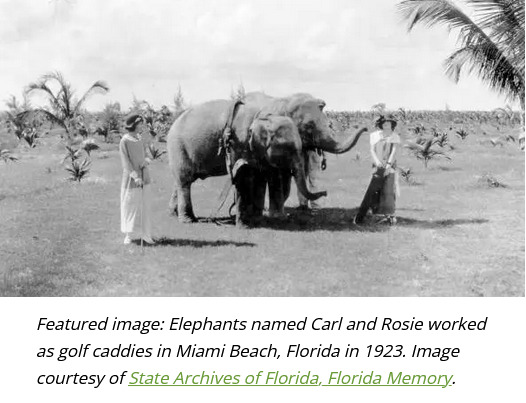
Like other resorts that pandered to a growing middle-class market for leisure in the roaring 1920s, Fisher’s venture on Miami Beach was carefully curated as a “playground to the World.”
Just as Henry Flagler had separated “work” from “leisure” by building Palm Beach separate from West Palm Beach in the 1890s, Fisher kept his beach workers’ labor largely invisible - except when it enhanced the tourist experience of its middle- and upper-middle class clientele, as when the elephants caddied on the golf course or stomped divots on the polo field. Fisher’s plan was to attract visitors to Miami Beach to come back year after year [...] [and] to prompt permanent settlement in his island subdivisions. These subdivisions, like his hotels, were meant to be exclusive. [...]
And while this landscape depended on an African American workforce, the city enacted Ordinance 457 in 1936, requiring the more than 5,000 service workers at the time to “register.” In addition to being photographed and fingerprinted, Black workers had to carry identification with them. [...]
---
In March of 1921, Carl II lived at the local fairgrounds [...]. An article in the Miami Daily Metropolis that celebrated Carl II’s presence there also noted that “the fair doors are not open to the colored population this year.” [...]
Part attraction and part workhorse, Carl II moved across spaces dividing work and leisure, non-human and human, and Black and white on which Miami Beach’s status as a “tropical paradise” for the white leisured classes depended. [...] Carl II was shipped off to the Circus in 1926, the same year that a devastating hurricane struck the beach and brought the “boom” years to an end. His companion, Rosie, eventually met the same fate. [...] While Miami Beach was developed as a playground for the white leisure class, its success was inextricably bound with the labor force that built and sustained it.
---
Images, captions, and all text above by: Anna Andrzejewski. “Work, Play, and Elephants in South Florida’s Leisure Landscape.” Edge Effects. 27 April 2023. Published at: edgeeffects.net/miami-beach-elephants/ [Bold emphasis and some paragraph breaks/contractions added by me. Presented here for commentary, teaching, criticism purposes.]
#abolition#ecology#colonial#imperial#multispecies#interspecies#temporal#temporality#elephant#carceral#carcerality#caribbean#tidalectics
130 notes
·
View notes
Note
Can i have an infodump on The Noble Prince? I just love the snippets you've posted so far :))
you absolutely can!!! the one i just recently posted isn’t from The Noble Prince, but pretty much everything else i’ve posted is haha. now strap in, because you’ve opened the floodgates :) (got long, it’s under the read more)
The Noble Prince is a work in progress (obvs) that follows the MC, a man named Kieran Noble.
It starts with him being a prison guard in a new city, Peoria (hello, my illinois friends - this has no correlation to the actual Peoria, i just like the name) tasked with the boring overnight shift, watching over the only prisoner kept in solitary confinement.
We quickly find out that Kieran comes with a traumatic past (which of my OCs don’t, tbh), which includes his mother dying in a house fire, and him nearly perishing in that same fire. He moved to Peoria to get away from those memories.
But then he starts noticing weird things about Peoria and the prisoner he’s meant to watch over (this job is generally a hard to get position, but he was a guard previously in his hometown Hostettler, and comes with a glowing recommendation of the Lord of Hostettler [comes into play later])
The prisoner seems kind of broken and crazy at first, saying things that don’t make sense, moods that flip on a dime, saying something and then contradicting it in the literal next sentence. She talks about a noble prince that’s meant to come save her and that’s the main thing she really latches onto.
Plot, plot, worldbuilding, exposition, plot, Kieran comes to find out that this prisoner is some type of magical creature/being/god of some sort. He makes a few friends along the way and sets out to free this prisoner. But he also starts to learn things about himself. He’s not exactly human either. The fire that took his mother and nearly him wasn’t an accident. Coming to Peoria wasn’t an accident (say hello to the Lord of Hostettler again).
i have a few vague ideas for what direction it’ll go after the god is freed and kieran knows (some of) the truth. originally, i thought that his mother would be the magic being that fell in love with a human, but then thought maybe she was human and fell in love with one of the creatures (i haven’t named them. i should name them) and had kieran. either way, she knew what he was and tried to protect him in childhood, bc magic is feared and hunted by the humans.
okay, i think i’ve rambled enough, and i think this is getting messy so ill abruptly end it here :) happy to answer any other questions anyone might have, though!!!
13 notes
·
View notes
Note
I have a headcanon that my courier is from a small Islamic town/community near shady sands. I'm not sure whether the ncr would consider them tribals, bc they have a distinct culture outside of that of the mainstream ncr citizens, but they aren't indigenous (iirc the great khans are similar, bc they came from vault dwellers, and I doubt the vault dwellers in question were actually turkic or mongolian given how small that diaspora is). Do you have any thoughts on what a tribal actually is or means in postwar america?
Canonically, Shady Sands was founded by one group of former inhabitants of Vault 15, and other groups from the vault became the Khans, Jackals, and Vipers.
As far as how the label "tribal" is applied in canon, it's not incredibly clear. When Caesar, House, or the NCR speak of "tribals" it's often perjorative, referring to groups they deem uncivilized; more broadly, it's frequently used to refer to any distinct cultural group that lacks formal government and is self-sufficient.
Anthropologically speaking, a tribe is a group linked by social, economic, religious, or blood ties, with a common culture and dialect—which covers a range of post-war societies and could very well encompass the society you described. Of course, there are still certain connotations associated with the terms (especially "tribal") both irl and in the game that you may want to avoid, especially if you're incorporating Islam and potentially MENA/MENASA diaspora.
I don't mean to suggest you wouldn't do your due diligence, and you've obviously given this a lot of thought, but since we're talking about how it relates to canon and the precedents Fallout sets wrt its fictional tribes range from thoughtless to abhorrent, you may prefer to refer to your society by a different term than to adopt the baggage that canon has attached to tribe.
Josh Sawyer has explained that, in Honest Hearts at least, the tribes were meant to be made up of descendents of diverse ethnic backgrounds, and I imagine that was likely the intent in the other games. However (and to his credit, JS owns up to this in the linked post), the end result still played into a lot of Western stereotypes of Indigenous Peoples, particularly Indigenous Peoples of North America.
Of course the problems didn't begin or end with Honest Hearts—from New Vegas' Blackfoots of Arizona (not to be confused with the irl Blackfoot Nation, whose traditional lands comprise what is now Alberta, Canada, and Montana, U.S.) to the Whachutu tribals of Peoria (from Fallout Tactics), whose name is a reference to the fictional African tribe called the Wachootoo from Ace Ventura, there are a ton of examples of how not to handle a topic like this in a culturally sensitive/respectful way.
I'm glad that the dev team at Obsidian is taking criticism of these depictions to heart and involving more sensitivity readers, but unfortunately there's a lot of shit baked into the Fallout canon that anyone making derivative works has to navigate with extreme care.
(Also, I'd love to hear more about your courier and their community!)
#barely got into how the geck races factor into all this#& essentially erase indigenous people who wouldn't also id as either black/white/hispanic/asian#the geck racial/ethnic categories are such a damn mess#on so many levels#fallout#fallout 2#fallout 3#fallout: new vegas#fallout 4#fallout tactics#mojave express dropbox
38 notes
·
View notes
Photo









“Maybe you should put on a long-playing record.”- Quantum Leap, ‘Good Morning Peoria’ S02E06 #4
84 notes
·
View notes
Text
Over soup with The Bungle Brothers
GEORGE: Joey, have you heard about our great new act?
JOEY, sheepishly: But will it play in Peoria?
0 notes
Text
Much like the last guy who killed himself by lighting himself on fire, these sorts of acts mostly spark debate about the meta-political value of such as act.
In this case the victim's final words were read on CNN, which might be taken as an accomplishment, but they don't exactly read like something that will play in Peoria, so probably anyone not already correctly valenced will probably conclude "wow that guy sure was crazy huh"
a loyal student of american history as she is presented in schools who subsists on a diet of CNN and WaPo might even reasonably arrive at the conclusion that leftism is such a self-defeating ideology that its adherents frequently have no other choice but to kill themselves.
7 notes
·
View notes
Text
.
“Ted.” Beard’s voice could never be described as particularly forceful— nothing about him really could— but right now he wills it to be clear and strong. “You remember that night I called you, right after I got outta jail?”
Ted forces his way through another shaky breath. “...Yeah.”
It wasn’t right after he got out, really. The first thing he did when he got out was try to make his way home. It wasn’t until after he got the door slammed in his face there, after he tried and failed to find a couch to crash on nearby, after he couldn’t find a job, after he’d spent several miserable weeks sleeping on the streets in the dead of winter— only then did he call up Ted.
“You drove twelve hours round trip that night,” Beard recalls. “All the way up to Peoria then back down again. Just off one phone call.”
Ted’s still hunched over, his hands balled into fists and shaking, but he gives a weak laugh. “Uh-huh. Was a younger man then. Not sure I could pull that kind of all-nighter now.”
Beard pushes on. He has a point to make. “There’s one part about that night that’s always stuck with me. More than the rest, anyway.”
Ted hasn’t stopped shaking, but he manages to lift his head now, looking Beard in the eye. “Yeah?”
“You remember we had the oldies station on to keep you awake. Both of us belting our lungs out to the songs we heard on our parents’ records as kids.”
Ted smiles at that, a real smile, and Beard lets the satisfaction of that bolster him— Ted has always been a sucker for nostalgia. At the time, those old 70s songs they charmed themselves listening to felt like a world away from the present. Now, they’re old enough to start having nostalgia about their own 20-year-old nostalgia. Christ.
He’s never quite been able to put it into words, to Ted or to anyone else, but that night had seemed nothing short of magical to Beard. It had felt like decades since the last time he laughed that hard, watching Ted croon along in his best impression of [some lame 70s artist idk]. He was warm, and with a friend, and even the greasy fast food hamburgers they’d picked up tasted like ambrosia with how hungry he was, and it felt like he was leaving every single ounce of hardship and hurt behind in Peoria as they drove away.
That feeling wouldn’t last in the coming weeks, when Beard struggled and crumbled and the whole thing culminated in that godforsaken stolen car incident. But for that one night, he truly believed it.
Before that night, Beard had always been rather lukewarm on those old 70s songs that accompanied him along in his childhood— most of them were tied to childhood memories, and not all of them were particularly pleasant memories— but even despite that, he and Ted both knew every single word to most of the songs that came on the radio. And the sight of Ted shouting at the top of his lungs along to them, loopy and giggling as they approached five in the morning, just about wiped any bitter taste left out of Beard’s mouth.
“That was a good night,” Ted says now, quietly, his voice shaking with unshed tears. But he’s smiling.
“Yeah,” Beard agrees. “It really was.” He takes a breath. “You know, the part that’s— that’s really stuck with me?”
Ted nods, his smile broadening, already clearly seeing where this was going. “Dolly,” he says simply.
“Bingo, Ringo.” Beard finds it in him to mirror Ted’s growing smile back to him. “God, that was perfect timing.”
Ted laughs. “It really was. I’d have half a mind to think the DJ pulled that one on purpose.”
“I hope he did.”
They’d been on the road, somewhere in the middle of Missouri, when the sun started to rise. Even though they’d been shouting and laughing their way through the night, something about the clouds of pink and orange starting to creep their way over the horizon brought both of the young men to silence. And then, just as the blue of the daytime was starting to take over the purple of night, the most perfect song in the universe began to play on the radio.
It’s been a long, dark night, and I’ve been waiting for the morning…
Ted had broken out into a huge grin. “Aw, man,” he’d said. “I love Dolly.”
Beard hummed along an agreement, but couldn’t bring himself to say much, charmed by the appropriateness of the song. I can see the light of a clear blue morning, Dolly belted out, right as the blue morning did indeed open up in front of the two of them, urging them to leave everything painful behind them. Everything was gonna be alright, and everything was gonna be okay.
“You know,” Beard says, back in the present in the hotel room with Ted. “Now, every time I listen to that song, I always feel twenty-five again. Convinced that all the bad times are over and the world is nothing but my oyster.”
Ted laughs. “Me, too. Somethin’ about music, man. It’s got magic in it.”
“Sure does.” Beard looks down at Ted’s hands. They’re no longer shaking, so Beard takes them in his own.
“Ted,” he starts, his voice more serious-- he’s getting to the crux of it now, and he has to make sure Ted understands. “You know I owe you more than God himself.”
“Oh, come on, now.” Ted tries to slip his hands out of Beard’s grip, but Beard holds fast. “None of that.”
“It’s true.” Beard shakes his head. “But even if it weren’t, you know I’d still be here, yeah? You didn’t owe me anything when you drove straight through the night to pick me up and take me home. Me and Rebecca, and Roy, and everyone else— we’re not doing this out of any kind of obligation, okay? Or pity, or fear, or— or any of that. We’re doing this ‘cause when someone you care about is struggling, you hop in a car— or a plane— and you go to them. Surely you understand that. You have to. You’re the one who taught it to me.”
Beard’s worried he’s misstepped, because Ted’s hands are shaking again, but when he tries to let them go, Ted clings on tighter.
“I’m not used to this being the other way around,” Ted blurts out, and it’s clearly an admission, his eyes blown wide with fear. “I’m supposed to be the one who helps people. Not…”
“Not the one who needs help,” Beard finishes for him. “Yeah, I know, Teddy. I can feel it. But love never flows just one way, does it?”
Ted chuckles lightly. That’s a line he’s used on Beard, multiple times, throughout the past fifteen years. There’s been several times, now, where Beard has twisted himself up in sudden worry that Ted doesn’t understand how much Beard cares about him— not when Ted shows it and says it so easily, and Beard is so quiet about it. But every time he’s come to Ted about it, stumbling his way through half a sentence before his throat chokes up and keeps him from saying the rest, Ted’s been quick to assure him that he knows— after all, he always says, love never flows just one way.
Ted’s head flops down onto Beard’s shoulder, seeming to accept his own words being used against him, and Beard wraps his arms around his friend’s shoulders.
“Teddy,” Ted echoes, muttering it into Beard’s shirt. “Been a long time since you called me that.”
Beard hums into Ted’s hair. “Hm. Sure has.”
The melody to Clear Blue Morning is still bouncing around in Beard’s head. Everything’s gonna be alright.
Ted takes a breath.
It’s gonna be okay.
#written mmmm a month and a half ago ish#no context no context for u#very much a hodgepodge of other fics i've read. if u recognize certain aspects its 100% because i stole them from other fics lmao#i think i will start just dropping my unfinished wip snippets in tumblr posts bc why not#they're not doing any good sitting in a google doc
11 notes
·
View notes
Text
Shortly after wrapping up an inaugural legislative session in 2019 that included hiking the state’s minimum wage, legalizing cannabis and passing a historic $45 billion statewide construction program supported by expanded gambling and a host of increased taxes and fees, Gov. J.B. Pritzker sought to reassure a group of Chicago business leaders that he wasn’t just another tax-and-spend liberal.
Addressing the Executives’ Club of Chicago, Pritzker, a billionaire heir to the Hyatt Hotels fortune and a prominent tech investor, said he would pursue a “rational, pragmatic, progressive agenda” that ultimately would pay dividends for the state budget and Illinois’ economy.
“I’m a businessman. I’m a progressive. I’m a believer in growing the economy and lifting up people’s wages,” Pritzker said at the time.
Now in his second term and preparing to play host to this summer’s Democratic National Convention in Chicago, while also eyeing his own future White House run, Pritzker’s identity as a self-described “pragmatic progressive” is being put to the test. The state faces its most challenging budget outlook since the first year of the COVID-19 pandemic, the governor continues to grapple with controversies over his handling of criminal justice issues and leaders on both sides of the political divide say Pritzker’s approach sometimes falls short of fully addressing the state’s biggest problems.
The latest assessment of Pritzker’s strategy will undoubtedly play out in Springfield in the coming weeks.
With March primaries come and gone, work is underway in earnest on approving a state spending plan for the coming budget year before the General Assembly’s scheduled May 24 adjournment. The proposal Pritzker laid out in February attempted to build on past progressive successes — such as last year’s expansion of state-funded preschool programs — without overpromising and potentially jeopardizing the state’s hard-won credit upgrades, a core accomplishment the governor guards jealously.
It’s a balancing act that’s key to Pritzker’s political persona as he builds his national profile, and one that will hinge on the governor’s ability to satisfy Democratic lawmakers who want more money for their legislative priorities while not resorting to the kinds of budgetary gimmicks that created the state’s long-running fiscal instability.
“Obviously the governor and his administration carry forward sort of a number of elements of the core progressive banner in terms of policy and program, and that’s a part of an identity,” said Joe Ferguson, president of the Civic Federation, a nonpartisan budget watchdog. “What is not usually coupled with that identity is fiscal responsibility. … This sort of fiscal responsibility is a kind of kryptonite against the narrative that would usually come from conservatives.”
‘ISN’T ROOM FOR OTHER SPENDING’
While Pritzker promotes the “pragmatic progressive” agenda publicly, he also pushes it privately. In a February text to state Rep. Jehan Gordon-Booth of Peoria, the top budget negotiator for the House Democrats, the governor noted that “almost all of the few new things” he was introducing in his budget plan were at “no cost (or very low cost).”
“There is a bunch of stuff focused on the Black caucus, including addressing maternal mortality,” Pritzker wrote to Gordon-Booth in the message, obtained through an open-records request. “But there really isn’t room for other spending this year.”
Indeed, Pritzker’s plan both dabbles in progressive priorities — a child tax credit and a sales tax measure that will skim some funds away from big retailers — while also keeping an annual increase in school funding to the minimum amount required by law and steering clear of more structural tax changes pushed by progressives.
A few points the governor made in his proposal seemed tailor-made for bipartisan appeal: a $12 million child tax credit for low- and moderate-income families and the elimination of the state’s 1% sales tax on groceries.
While also popular with Republicans, elimination of the grocery tax has progressive appeal because Pritzker has framed it as an effort to abolish a regressive tax that hits those on the lowest rungs of the economic ladder the hardest. It’s also a tax cut that is easier on the state’s bottom line in a tight budget year because revenue from the tax flows not into the state’s coffers but to local governments.
The day after Pritzker’s budget address in February, state Sen. Donald DeWitte, a St. Charles Republican, said he was “thrilled” Pritzker proposed scrapping the grocery tax, but he said the governor should also be devising a way to ensure local governments don’t pass the burden of the lost revenue onto residents. While it’s possible Pritzker could be trying to appease the GOP, the proposal doesn’t go far enough, DeWitte said.
“Any opportunity to take stress off of Illinois families is a good thing,” said DeWitte, a former mayor of St. Charles who also serves as one of the Senate GOP’s budget negotiators. “But there are always ramifications that have to be dealt with, and so far, I don’t think the administration has been willing to deal with the ramifications of simply removing that tax without considering the other side of that revenue equation, which is the hit that will go to local governments.”
The Civic Federation still is evaluating the governor’s budget proposal, including the idea of eliminating the grocery tax, but Ferguson said it’s important to look at that idea in the full context of all the state funds that flow to local governments.
“You have to do the math on what additionally has been sent to the local level with what is essentially being taken away with the grocery tax and see what it amounts to,” Ferguson said. “It amounts to a far less dire situation than the localities appear to be projecting.”
Another idea with the potential to attract Republican support is the child tax credit. But both DeWitte and some progressives find themselves in the odd position of agreeing with each other in supporting the idea but also thinking it could be more ambitious.
“The governor has allocated $12 million for this, and that just doesn’t get you very far,” said state Rep. Will Guzzardi, a Chicago Democrat who co-chairs the House Progressive Caucus.
Democratic state Sen. Mike Simmons of Chicago has introduced a more robust tax credit than the one pitched by Pritzker; it would cover families with children up to age 17, rather than age 3.
Negotiations for the credit, as well as the rest of the budget, are ongoing.
“It was a win that the governor put this in his budget. It allows us to have this discussion at another level,” Simmons said.
TIGHT FISCAL REINS
Several of the governor’s belt-tightening measures — from increasing school funding by the bare minimum to cutting back on state-funded health care for immigrants who are in the country without legal permission — have drawn scrutiny from his political left.
While Pritzker speaks frequently about the importance of education funding and brags about boosting funding for elementary and high schools by more than $1.4 billion since taking office, the reality is that he’s only kept up with the minimum target of increasing state funding by $350 million per year.
Advocates long have warned that those increases are not enough to meet the state’s goals of adequately funding public schools under a state aid formula signed into law in 2017 by his predecessor, Republican Gov. Bruce Rauner.
Failing to go above the minimum increase has been a long-running source of frustration for Rep. Will Davis, a Democrat from south suburban Homewood who was one of the sponsors of the 2017 school funding overhaul and chairs the House Appropriations Committee that oversees K-12 funding.
“We tried to put a trajectory out there to try to get to full funding. And the reality, I don’t think we’ll ever actually get to that,” said Davis, who for years has pushed for at least a $500 million increase annually. “But we have to make bigger strides to at least show that we’re trying to get to what we would call full funding.”
Although Davis notes the education funding formula was crafted when Rauner, not Pritzker, was in office, the Democratic lawmaker said that doesn’t alter his overall message to Pritzker.
“Governor, why not work with us? Let’s make sure that we find the resources so that we can ramp up the funding in a different way,” Davis said a few days after Pritzker pitched his budget.
This year, Pritzker and state lawmakers will face added pressure to boost school funding from the politically progressive Chicago Teachers Union, which has signaled it will be looking to Springfield for more money for Chicago Public Schools as it negotiates a new contract with a City Hall run by its strongest ally, Mayor Brandon Johnson.
Tensions between Pritzker’s progressive ideals and his pragmatic approach also have arisen over state-funded health insurance for older Illinois residents who are in the country without legal permission.
The debate over how to deal with ballooning costs in the program delayed passage of the state budget last year, a dispute between Democratic factions — including Black and Latino lawmakers and moderates and progressives — that was only resolved when Pritzker agreed to a deal that gave his administration the power to rein in the program’s costs.
His moves to close enrollment for younger participants, begin charging co-pays and, more recently, to stop offering the program to green card holders who are in a five-year waiting period for federal Medicaid benefits, have drawn the ire of immigrant rights and health care advocates and some progressive lawmakers.
Last month, for example, Rep. Norma Hernández, a Democrat from Melrose Park elected in 2022 with the backing of progressive stalwart U.S. Rep. Jesús “Chuy” García, criticized the latest move as a “short-term cost-saving measure, not a long-term” solution.
In his proposal, Pritzker suggested spending on the program from the state’s general fund be reduced to $440 million, which is $110 million less than what was committed this fiscal year. But the administration is also proposing spending nearly $200 million more on the program from other funding sources, with much of that money coming from a federal match to emergency services funding.
The maneuvers have created some dissonance between Pritzker’s actions and political rhetoric. In a news release touting the expansion of eligibility to those ages 42 to 54 in 2022, he declared: “From day one of my administration, equity has been — and will always be — our north star. Everyone, regardless of documentation status, deserves access to holistic health care coverage.”
‘GROW THE PIE’
In the longer term, some progressives are looking for additional moves that would bring in more revenue from the richest Illinoisans and large corporations, Guzzardi said.
A tax change for retailers was one example that made it into the proposed budget, Guzzardi said. Pritzker proposed capping the money retailers can keep from sales taxes, essentially resulting in higher taxes for those businesses and more revenue for the state.
Beyond that, progressives have other ideas “about how we could grow the pie,” Guzzardi said.
“The governor’s introduced budgets don’t include those ideas, that’s true. But working within the framework of the dollars that we have, I think the governor has done a really strategic job of investing those dollars in our shared progressive priorities,” he said.
Since Pritzker’s boldest progressive proposal to change the state’s tax structure — a state constitutional amendment to create a graduated-rate income tax — was resoundingly defeated at the ballot box in 2020, thanks in large part to efforts by the state’s business community, the governor has focused on more arcane ways of boosting state tax revenue.
Aside from the retailer sales tax change for next year, an idea that’s been proposed and rejected previously, Pritzker is also suggesting limiting an inflation-based increase in the personal income tax exemption, essentially increasing taxes on individuals by $93 million.
PRISONER REVIEW BOARD TUMULT
The state budget isn’t the only arena in which Pritzker at times has had to triangulate his progressive policy positions with pressures from the political center and the right.
Recent tumult at the state Prisoner Review Board brought the spotlight back on the Pritzker-controlled institution that decides which state prisoners are paroled.
The makeup of the Prisoner Review Board has changed noticeably during Pritzker’s time in office — early on being labeled by Republicans as too liberal and later being criticized by some prisoners’ rights and criminal justice reform advocates for taking too hard of a line and preventing older inmates from getting the paroles they sought, moves conservatives applauded.
But in March the review board became a focus yet again when parolee Crosetti Brand was charged with stabbing 11-year-old Jayden Perkins to death and seriously injuring his mother, with whom Brand used to be in a relationship.
Released on parole in October for a separate crime, Brand was back in state custody in February after he allegedly tried to break into the residence where Jayden and his mother lived. But a three-member review board panel decided to release Brand after determining the panel didn’t have enough evidence from Jayden’s mother’s allegations to keep him behind bars.
Days after the attack made headlines, the board’s chairman, Donald Shelton, and another member resigned.
In announcing one of the resignations, Pritzker said it was clear “that evidence in this case was not given the careful consideration that victims of domestic violence deserve” and suggested reforms could be made to the way the board functions.
For Pritzker, the resignations should be “a feather in his cap,” showing that he’s willing to admit there was a grave mistake within an agency that falls under his purview, said Christopher Mooney, an emeritus professor of political science at the University of Illinois at Chicago.
But Mooney also said the board’s actions in the Brand case could entice Republicans or any other detractors to politicize Jayden’s death and use it against Pritzker if he tries to run for president.
It’s been done before, Mooney said, referring most notably to the 1988 presidential election when Republican George H.W. Bush used the early release of Willie Horton, a Massachusetts murderer who went on to commit other crimes, to paint Democrat Michael Dukakis as soft on crime.
Already, Senate Republicans have used Jayden’s death against the governor.
Illinois Sen. Jason Plummer, a Republican from Edwardsville who sits on the Executive Appointments Committee, blamed Pritzker in two lengthy social media threads about the board’s shortcomings, criticisms he echoed at a news conference and in an appearance on Fox News.
Although Pritzker called for additional training for review board members on how to handle cases where domestic violence is involved, the Senate Republicans are pushing for broader changes.
Their proposal includes requiring that appointees to the board have 20 years of experience in the criminal justice system as a prosecutor, criminal defense attorney, judge, probation officer or public defender. The GOP plan also would require victims be immediately notified of a prisoner’s release under certain circumstances and increase transparency requirements for the board.
While Senate Republicans were previously successful in 2022, when crime was a key campaign issue both statewide and nationally, in pressuring Democratic colleagues to oppose a couple of Pritzker’s appointments to the board, it’s unclear whether the GOP’s superminority will be successful again.
But Mooney and other observers have questioned how effective the Republicans will be.
“As it stands right now, it doesn’t sound like it’s going to go very far,” Mooney said the day after the board’s resignations were announced. “No. 1, because Pritzker’s all over it.”
#us politics#news#chicago tribune#2024#illinois#Gov. J.B. Pritzker#progressives#Democrats#Rep. Jehan Gordon-Booth#Sen. Donald DeWitte#Rep. Will Guzzardi#Sen. Mike Simmons#Rep. Will Davis#Mayor Brandon Johnson#Rep. Norma Hernández#Rep. Jesús “Chuy” García#Sen. Jason Plummer#state budget#taxes#public education#state-funded health insurance#graduated-rate income tax#personal income tax exemption#Prisoner Review Board#criminal justice reform
3 notes
·
View notes
Text
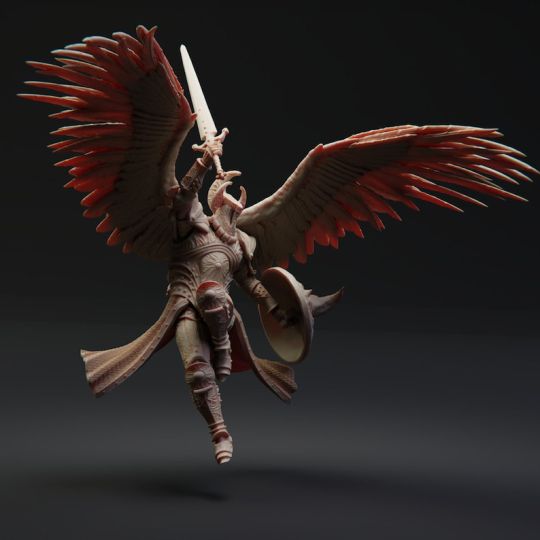
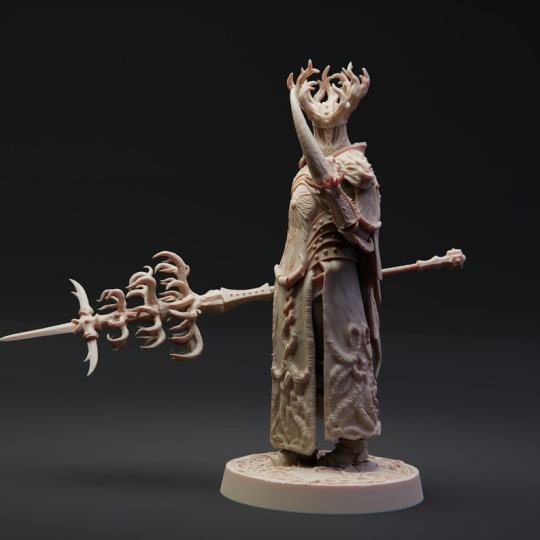
I impulse bought these figures at 1am a few days ago, and I cannot wait to get them!!!!
45 notes
·
View notes
Text
Everyone Should Watch Rampage, to Learn How NOT to Make Movies
What is Rampage?, you might ask. Because I doubt anyone else saw the movie, and the source is not culturally relevant.
Rampage is a video game movie. In the great and long tradition of Hollywood buying the rights to a video game without a plot, making up a terrible plot, and throwing it out the door. In the hopes that... people won't recognize the name and go and see the unknown movie?
DOOM is a great example of this, which coincidentally also stars The Rock.
DOOM is about a guy with the build of a football player, in powered armour, killing demons with bigger and bigger weapons, (and a chainsaw). The DOOM movie decided to give him a squad that all needed personalities.
Rampage is a video game where you play the Kaiju destroying a city. Your goal is to climb the skyscrapers in Peoria, Illinois smash them, and eat people. You play one of three giant animals, Ralph (wolf), Lizzie (lizard), and George (gorilla).
Now, the movie movies it to Chicago, which sure, more skyscrapers.
So, how do you make a movie about?
By having The Rock befriend one of them. Specially, George, the gorilla.
The thing is, The Rock has enough charisma and impact to actually make this work. He plays a former special forces operator that joined anti-poaching in Africa. There he saved an Albino gorilla, and eventually retired to be a zookeeper.
There are three main characters who drive the story:
The Rock
George
The Cowboy
The Cowboy plays an OGA (other government agency) agent. The Rock and The Cowboy get along quite well, because they both hate people, but want to help them. And these three, actually work. George is infected with a mysterious gas that make him start to grow larger and larger. He is disturbed by this, and the Rock is worried about him. They end up on the run, and run into the Cowboy. The Cowboy quickly assesses the situation, and believes that The Rock isn't responsible, and genuinely cares about George. They bond over their misanthropy.
And the actors do a great job of this.
And then the movie adds three more characters:
Brother and Sister CEOs of the evil corporation.
Strong black woman.
The Brother and Sister spend all of their screen time telling us how evil the evil corporation is. When you see something like this, there are three basic assumptions:
Military
Evil Corporation
Toxic Waste
If you tell the audience it's an evil corporation, they are more than willing to believe that it's an evil corporation. Wasting a third of the movie to show how evil the evil corporation is, is just a waste of time.
The strong, black woman's job is to tell you how much of a strong, black woman she is. Okay, she's actually a defecting scientist from the evil corporation, but the only thing she provides to the story is the POSSIBILITY that there might be a cure. She left before the cure was finished, so she honestly doesn't know.
Now, she could be charismatic, or add an interesting dynamic to the story, and make the story better because of it. She does not. She also has a last minute hookup with The Rock, because default ending.
Alright, let's say we want to be inclusive. Assuming that The Rock's 20 ethnic groups aren't inclusive enough. You what to know what you could do? Make the cowboy a black lesbian. As long as she still had the same personality to mesh with The Rock.
What's worse is that, this is her character in the sequel (the one she is likely inspired by):
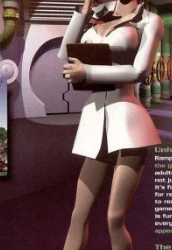
And she has a brief moment where she stands up to the CEO about the ethics of the experiment. Meaning she does more, both in terms of forceful personality, and plot relevance, than the strong, black woman.
If you cut out the evil brother and sister, and the strong, black woman, the movie actually works. The main characters have strength, charisma, and a great rapport.
Less - is - more.
4 notes
·
View notes